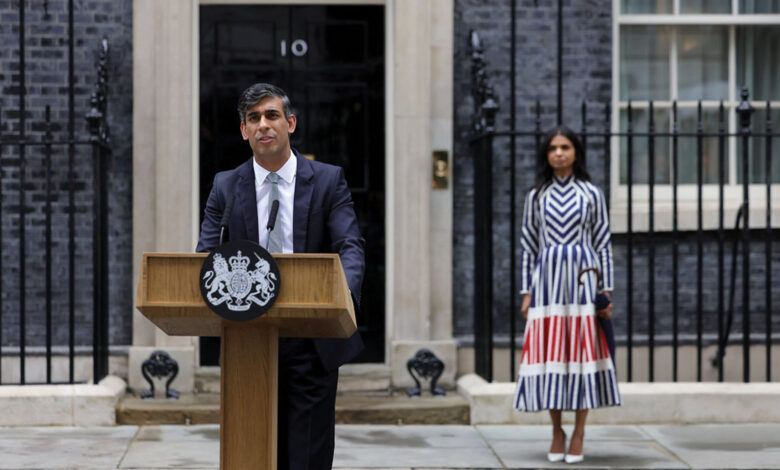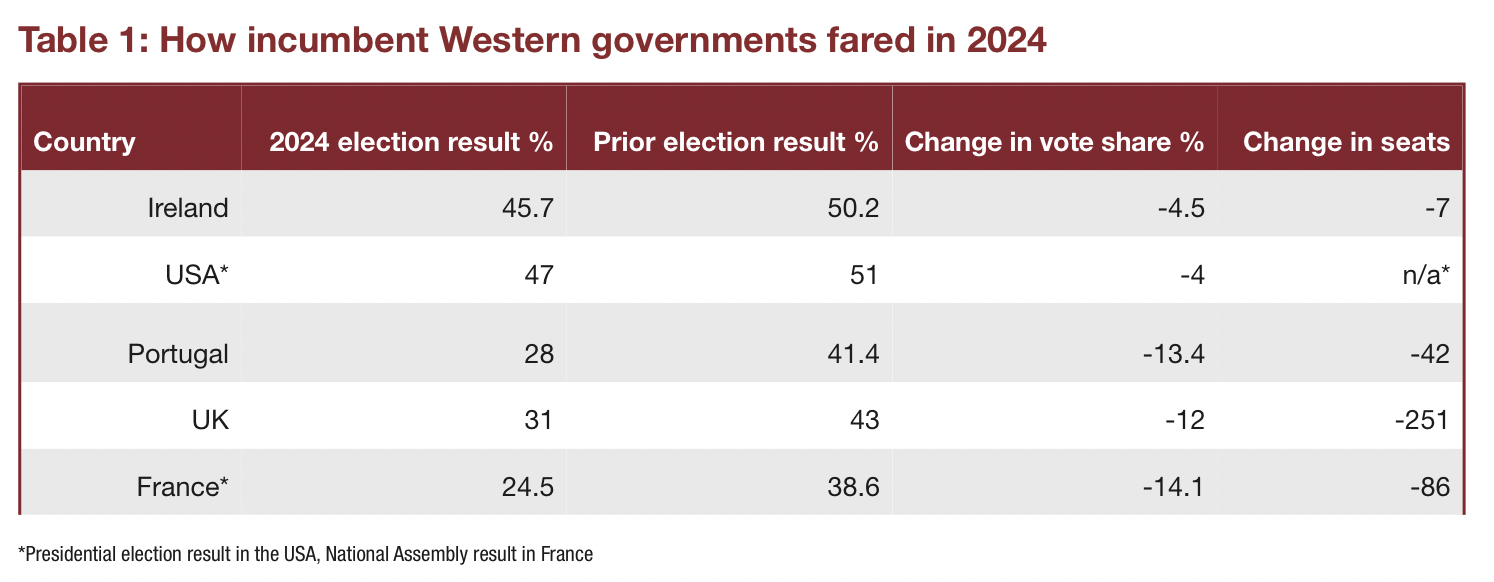2024: The year of political revolt

The 2024 ‘year of elections’ has drawn to a close, and throughout almost every developed country in which elections took place, it was a year of political revolt. Joshua Murray examines the ramifications this of political upheaval.
While the prevailing narrative determines that there has been a shift to the right in global political affairs, the real story behind the political change who have taken place is one of a broadly dissatisfied western public who have seemingly revolted against incumbent governments, regardless of stated ideology.
No clearer can this picture be painted than when comparing the election outcomes in the United Kingdom and the United States.
In Britain, the Conservative Party, which governed between 2010 and 2024 with a heavy use of populist rhetoric on immigration, removed the country from the European Union, and won a landslide victory in 2019 under Boris Johnson, was sent crashing to its worst ever general election result. Yet, in the election, the British public gave a landslide victory to a politically bland, non-populist centrist in Keir Starmer and his ‘changed’ Labour Party.
Meanwhile, the US electorate, which was equally motivated (according to the most reliable polling) by immigration, cost-of-living, and the wars in Ukraine and the Middle East, decisively voted to return Donald Trump – a far-right, convicted criminal and proven sexual abuser, who promised to be a ‘dictator’ “on day one” during his campaign – to the White House, four years after he attempted to overturn the result of the 2020 election in which he was defeated by Joe Biden.
In Ireland, where Fianna Fáil and Fine Gael combined secured close to an overall majority – results which both parties are broadly satisfied with and bucked the global trend – there was a revolt against the Green Party, which collapsed from 12 seats to only a single TD. Fianna Fáil’s election victory is still the party’s second worst popular vote margin, while Fine Gael secured its lowest popular vote margin since 1948.
In the rest of Europe, elections in France, Austria, Portugal, and Romania (where the Supreme Court has now suspended the second round of voting in the presidential election) handed the far-right their largest respective mandates since the defeat of fascism in 1945, while the European elections, paradoxically, saw parties of the centre broadly hold their vote and return Ursula von der Leyen as President of the European Commission.
Although all these elections produced diverse outcomes, there is one consistent trend: anti-incumbent sentiment. The more complex question, is why did people across the developed world vote to oust their incumbent government?
Polling shows that the cost-of-living was the most significant factor in elections in the UK, the USA, Ireland, France, and many other countries.
To put it very simply, when people are paying high prices and are faced with high inflation, they will punish the party in power and vote for a viable alternative, regardless of the ideology of either the government or the opposition.

What to expect in 2025
While cost-of-living challenges driving political leaders out of office is not a new trend (Jimmy Carter’s 1980 landslide defeat to Ronald Reagan was largely attributable to ‘stagflation’), the sheer scale of political change which has come about as a result of these changes means that there will be a radical shift in global political discourse.
While in Ireland, the collapse of the Green Party will likely have a minimal effect, save for a potential cooling on of climate policy, the return of Trump could mean a fundamental re-shift in US-EU relations, an emboldening of the Israeli Government as it continues to bombard Gaza, and a withdrawal of support for Ukraine as it continues to wage a defensive war against Russia’s invasion.
On the other hand, Keir Starmer’s rise to power in Britain may mean that the UK comes in from the cold with the rest of Europe, and forges closer ties to the EU, although any reversal of Brexit remains an extremely remote possibility.
At the time of writing, the Government of France has collapsed after the far-right National Rally withdrew its support for Emanuel Macron’s centrists, meaning that another election to the French Assembly may well take place in 2024, with the left and right once again expected to eclipse the liberals.
Furthermore, the German government is set to collapse after the FDP liberals in the German ‘traffic light coalition’ withdrew their support for the social democrat SPD and the Greens, and the far-right AfD party looks set to expand its presence in the Bundestag and give the far-right its largest representation in the German parliament since the defeat of Nazism. Furthermore, high-profile figures in the AfD have called for a German exit from the European Union and a withdrawal from the eurozone.
While the election of an extremist government is unlikely in France or Germany, the scale of volatility of western voters cannot be underestimated. The election of Donald Trump shows how the far-right can win power in advanced democracies when voters are angry at mainstream politicians.
If the cost-of-living does not improve for the general public, we can expect 2025 to bring more political earthquakes.





